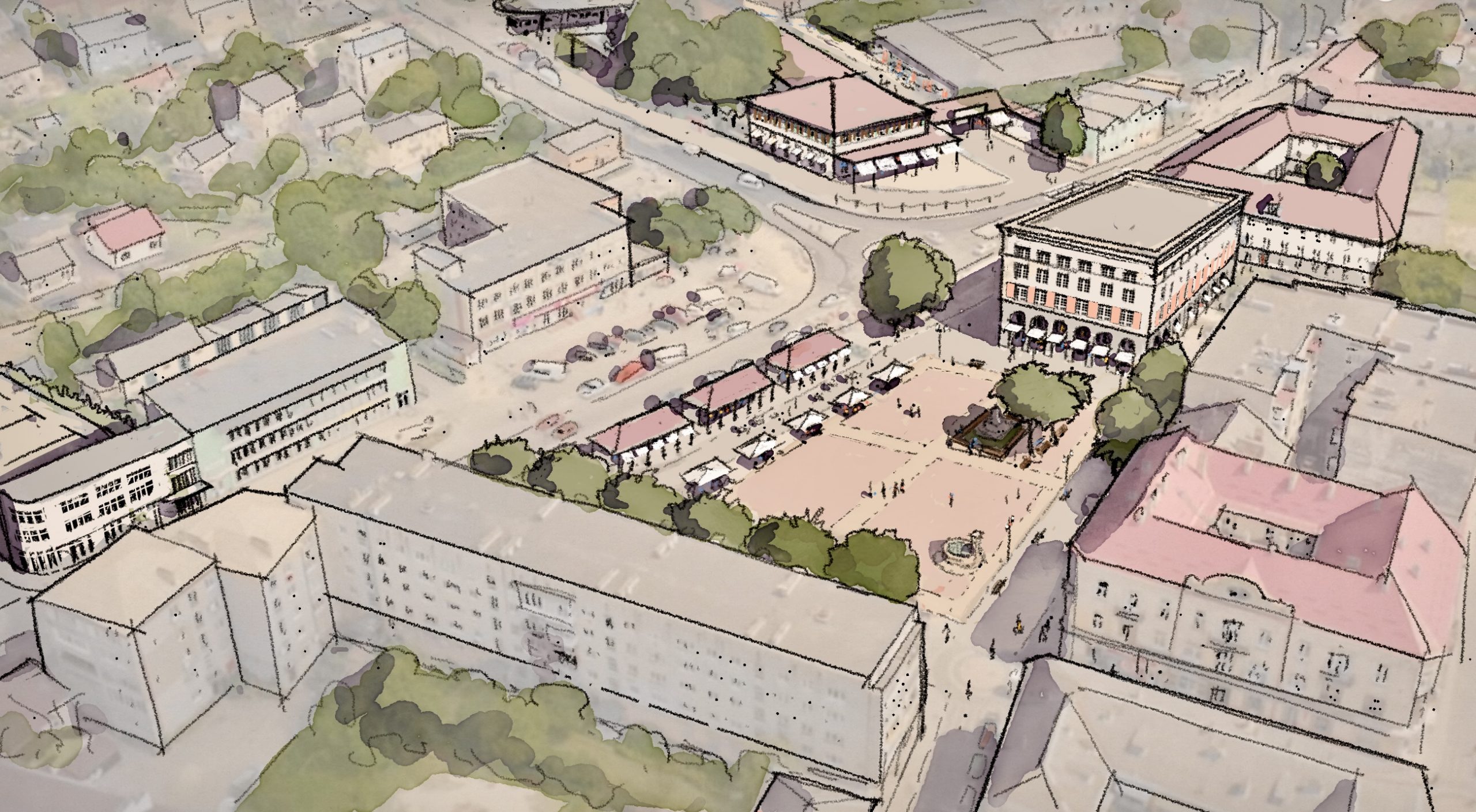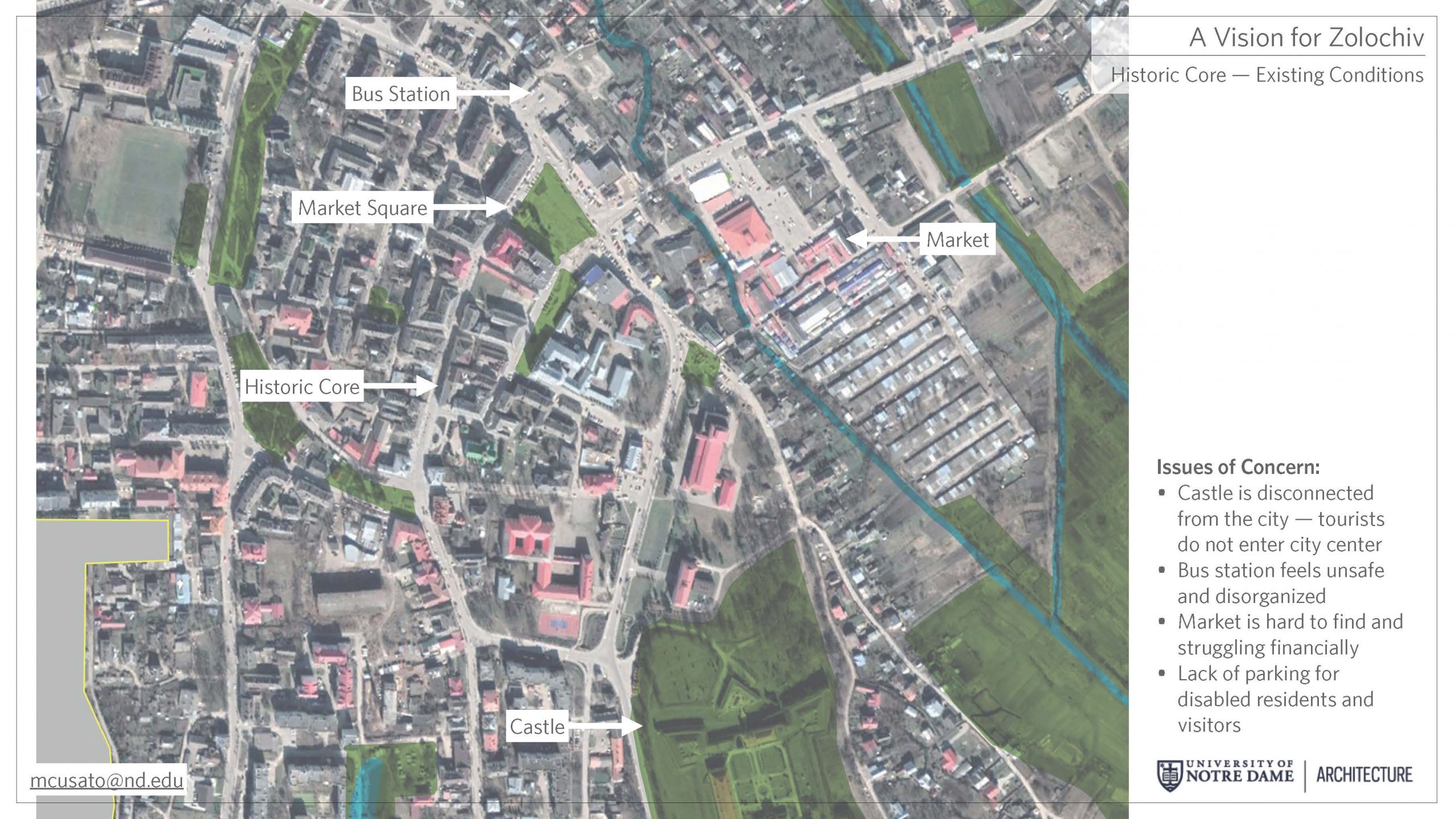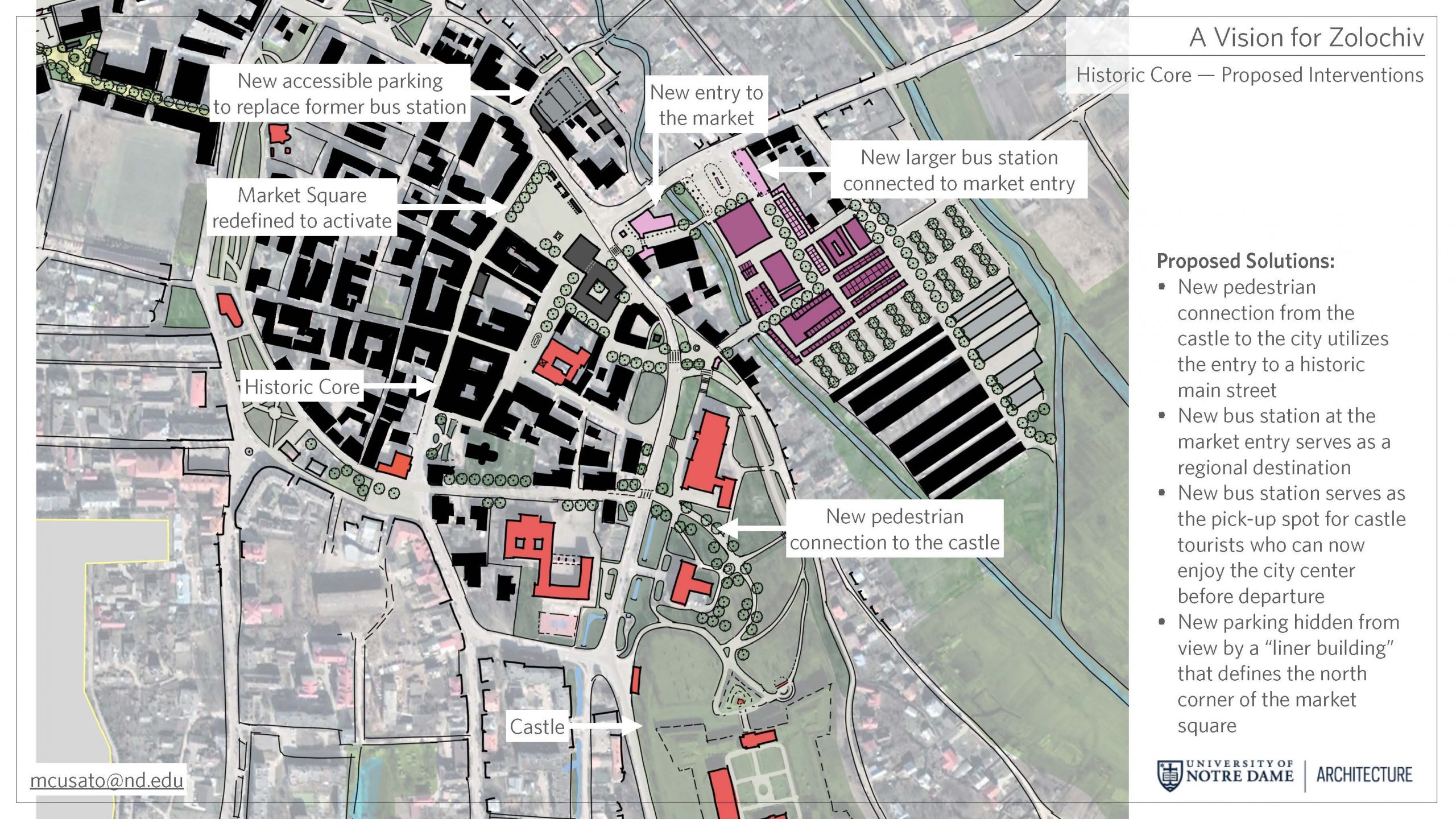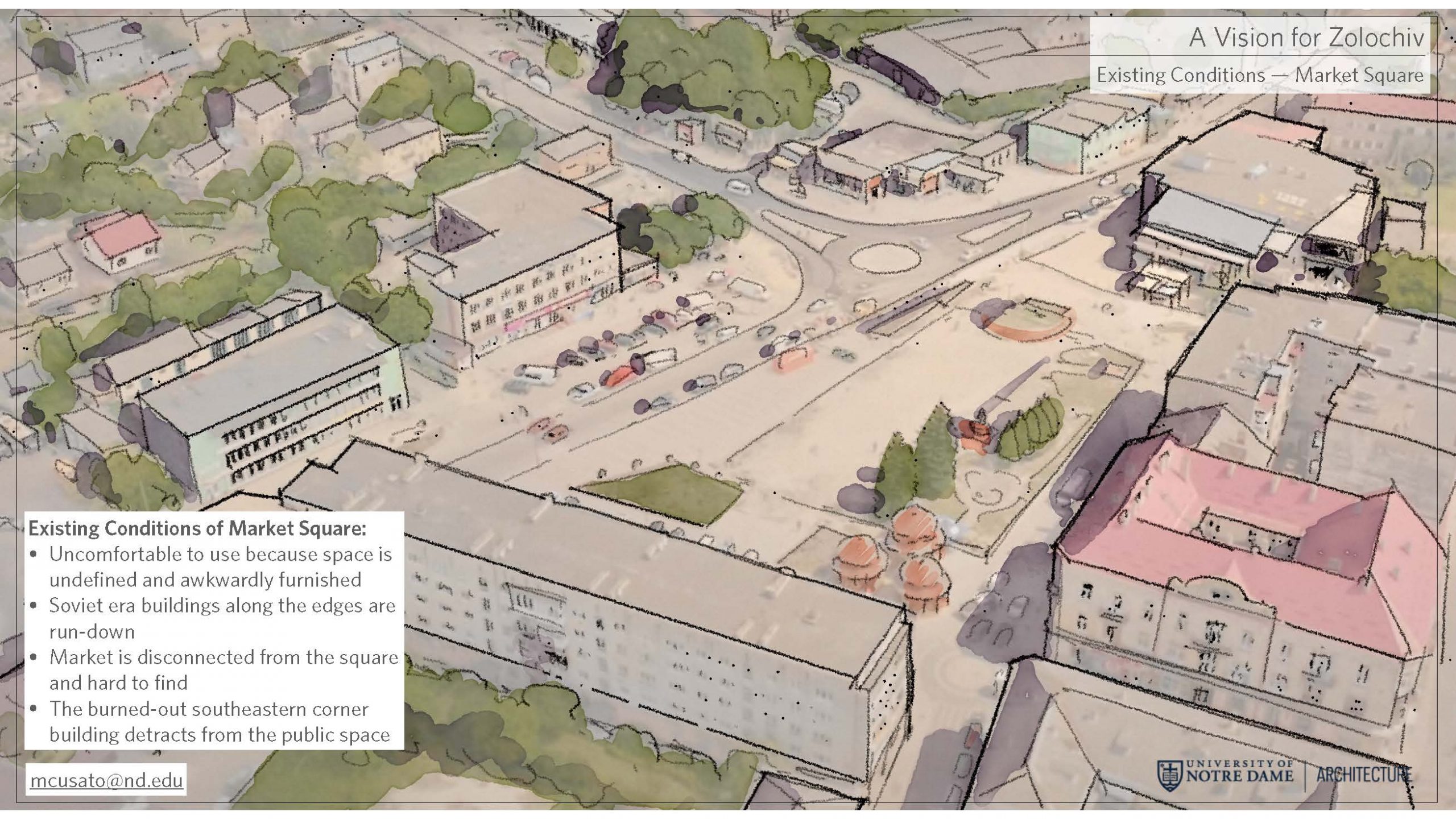In March 2024, the INTBAU network came together to discuss the future of Ukraine’s built environment. INTBAU chapters in Ukraine and Poland met with experts from the University of Notre Dame School of Architecture for an urban design workshop in the city of Zolochiv, western Ukraine. The workshop developed practical strategies for future urban growth that will minimise negative impact and boost long-term economic growth, in a post-war context.
This pilot project addresses three main aspects: the restoration of the city’s historic character, economic recovery, and the creation of a regulatory framework for urban growth. The practical work has been documented in the form of a step-by-step guide that will allow communities to replicate the work in other parts of the country.
Public engagement
In October 2023, the working group met in Zolochiv to conduct background research. During this visit, they met with the town’s Mayor, City Council, and Chief Architect, as well as members of the community and industry, including internally displaced people. These meetings underlined the need for urban planning in the context of the ongoing conflict. The group agreed that the future of Ukraine depends on preserving societal health and economic vitality through the built environment.
As the war in Ukraine continues, unregulated urban growth is becoming a major threat to the country’s recovery. This is worsened by foreign investments that often promote unsustainable development and single-use urban sprawl, putting pressure on infrastructure, which many Ukrainian cities may not be able to sustain in the long term. As a network, INTBAU believes that growth in Ukraine must reflect its unique cultural and historical context. This will be beneficial especially for communities and their future generations.
INTBAU has vibrant and active chapters of architects and urbanists operating in Ukraine and Poland. These groups are naturally concerned for the future of urbanism in the region and therefore invited a delegation led by the University of Notre Dame School of Architecture’s Marianne Cusato. As an INTBAU Trustee, Cusato has played a crucial role bringing together the various stakeholders needed and sharing her expertise during the visits.
The next step is the publication of the charrette report as well as supporting materials such as the recommended zoning code framework, preservation recommendations, and methodology guide. These materials are under production and are projected to be released throughout 2025. The hope of the team is to return to Ukraine in the spring of 2025 to support the City of Zolochiv as they work to adopt recommendations as well as to meet with representatives from regional communities considering the future of their built environment.
Slide for more images.
The collaboration in Ukraine builds on discussions convened elsewhere within the INTBAU network this year. In 2024, a two-part seminar in England and Sweden explored the impact of disasters on our built environments. These events highlighted the relevance of developments in Ukraine to the INTBAU vision, for urbanism that is informed by Ukrainian identity that can foster long-term community resilience.
In 2025, INTBAU will continue to convene conversations in this space with our partners. INTBAU Ukraine will help to create connections with relevant sectors in the country, including institutions involved in the rebuilding process. INTBAU will also continue to drive discussions, bringing together experts and stakeholders to explore best practices for rebuilding.
Organisations involved
The progress of this project is made possible thanks to the joint effort of several institutions. Key partners include local authorities and universities from the US, Poland, and Ukraine. INTBAU Poland and INTBAU Ukraine have also made important contributions, providing their local networks and expertise.
INTBAU Ukraine
INTBAU Ukraine is dedicated to promoting traditional building methods and cultural preservation in a post-conflict setting. Led by Professors Yurii Kryvoruchko and Andrii Markovskyi, the chapter focuses on rebuilding Ukraine by integrating world practices into local architecture and urban planning. Their work includes facilitating workshops, seminars, and collaborations with international partners like the University of Notre Dame. A key part of their mission is to protect Ukraine’s rural heritage, traditional crafts, and sacred architecture, which face threats from urbanisation and foreign influences. The chapter’s efforts aim to foster community resilience and preserve the unique cultural identity of Ukraine during its post-war reconstruction.
INTBAU Poland
INTBAU Poland has been a close collaborator in the Ukraine reconstruction efforts, offering expertise in heritage conservation and sustainable building practices. The chapter has a strong history of supporting traditional architecture and has played an important role in cross-border partnerships aimed at promoting resilience and cultural heritage in post-disaster contexts.
INTBAU Poland was founded in 2008 and became a national NGO in 2016. It promotes a holistic approach to urban spaces, making them liveable, beautiful, and sustainable. Through research, educational programmes, and partnerships with other institutions, they work to bring traditional values into modern development. The chapter is led by Professor Tomasz Jelenski.
Detailed information on the programme’s status, key findings, objectives, and anticipated impact will be available in the forthcoming report by the University of Notre Dame School of Architecture, Ukraine Cities Planning Initiative Overview: Seeking Identity, Mitigating Trauma, and Activating the Economy Through the Built Environment, expected to be published during 2025.
# # #




